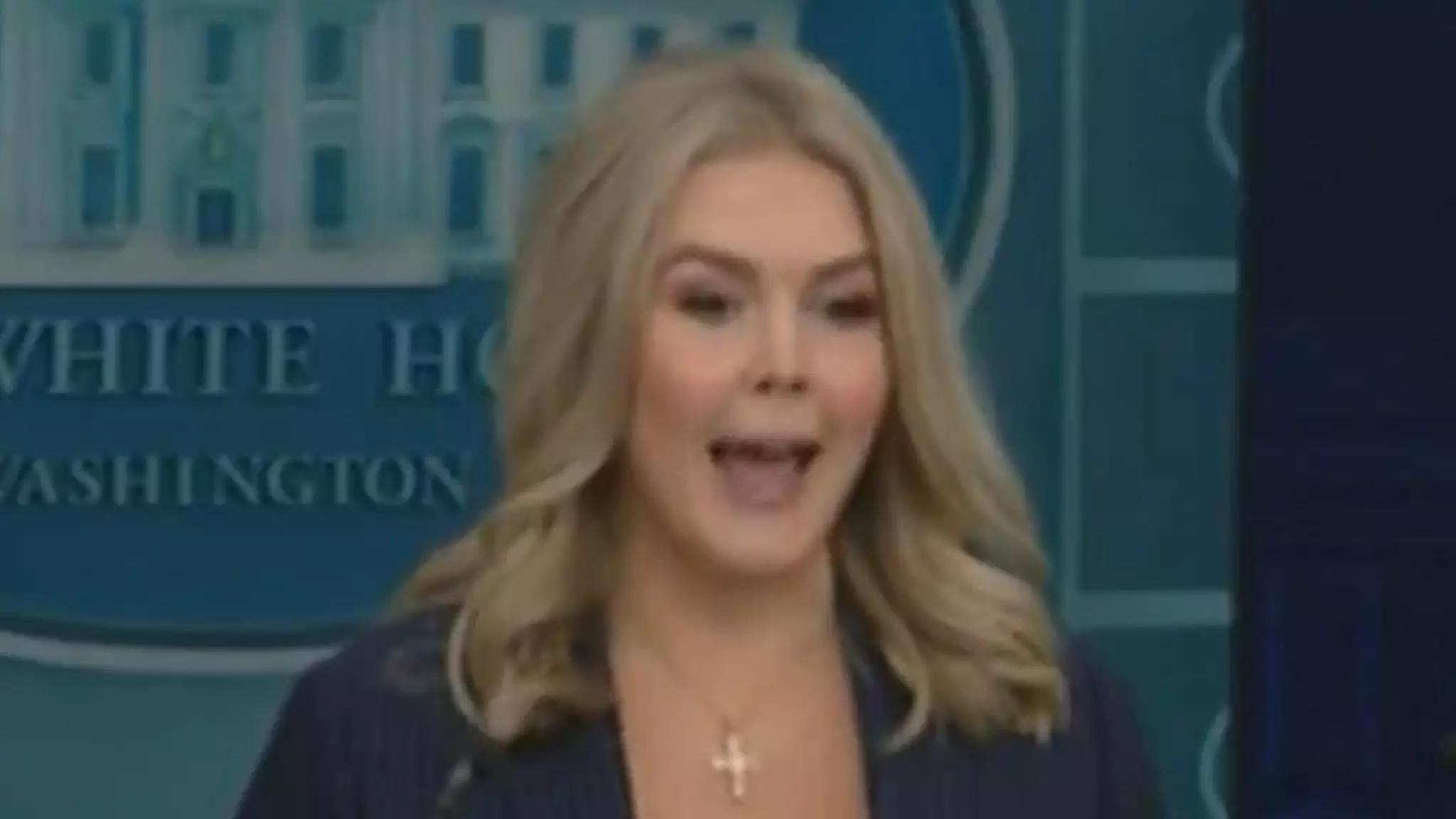In an era where executive authority increasingly intersects with media representation, President Trump’s recent governance strategy reflects a pronounced shift towards stringent media oversight. By employing his press secretary, Karoline Leavitt, as a vocal enforcer of his directives, the Trump administration is crafting a narrative that leaves no room for dissent or deviation from prescribed language. This tactic not only demonstrates Trump’s desire for control over public discourse but also serves as a clear warning to the media: align with our narrative or face the consequences.
At the center of the recent media frenzy is the administration’s insistence on redefining the name of the Gulf of Mexico to the “Gulf of America.” Leavitt’s assertive response to questions about the Associated Press’s (AP) reluctance to adopt the new nomenclature starkly illustrates the administration’s contentious relationship with media outlets that refuse to comply. By framing the debate as one of accountability against “lies,” the administration positions itself as the arbiter of truth, demanding an allegiance that challenges journalistic objectivity. The insistence on a name change may seem trivial on the surface, but it raises significant concerns regarding the limits of executive power over media language.
The implications of Trump’s media strategy extend into the realm of First Amendment rights. By threatening to revoke access to the White House based on adherence to a specific linguistic directive, the administration appears to undermine the foundational principle of a free press. CNN’s Kaitlan Collins posed a critical question regarding potential retaliation against dissenting voices, to which Leavitt’s response came across as a definitive endorsement of such actions. This mentality contradicts Trump’s professed support for free speech, revealing a selective interpretation that favors compliance over diversity of thought in journalism.
The Reaction of Media Outlets
In response to these growing tensions, the Associated Press maintained its position by citing a global perspective in journalistic reporting. The outlet emphasizes its commitment to uphold credibility not just within the U.S. but also on an international scale, where the name “Gulf of Mexico” remains prevalent. This resistance exemplifies a broader media challenge against perceived governmental overreach and suggests that not all will bend to political whims. Meanwhile, other entities, such as National Geographic and Rand McNally, are taking a more cautious stance, indicating that they are awaiting official guidance before altering their terminology.
A Reflection on Freedom of Expression
By escalating the stakes around such a seemingly minor issue, the Trump administration rekindles discussions around the very essence of freedom of expression. To demand conformity in language is to manipulate the narrative—a move that instinctively stirs apprehension among watchdogs of democracy. As we witness these unfolding dynamics, it becomes imperative to reflect on the role of media as both a vessel of information and a fortress of pluralistic discourse. It is clear that in this battle of words, the stakes are much higher than mere names; they touch upon the intricate balance between power and accountability in a democratic society.

Leave a Reply